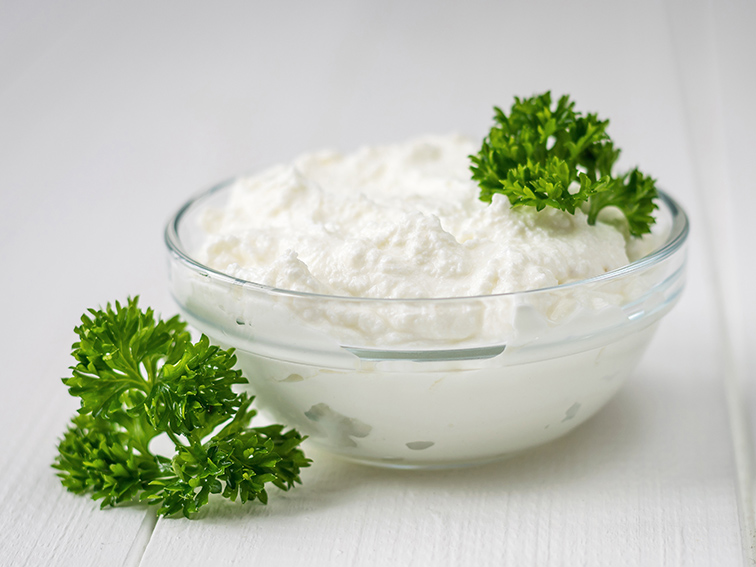
Since the 1950’s our food supply has seen a dramatic decline in vitamin and mineral content. Iodine and magnesium content in food has reduced by over 50%. This is due to soil vitamin and mineral deficiencies, food processing and poor food choices..
The process of refining foods like safflower seeds and wheat, removes upwards of 97% of the magnesium content. The result is a nutrient deficient, calorie-rich food product – it’s no wonder we are facing a global health crisis! Coupled with poor absorption rates, getting enough magnesium into your cells is becoming increasingly difficult.
“Serotonin, the “feel-good” brain chemical that is boosted by Prozac, depends on magnesium for its production and function.”
―
What is Magnesium?
Magnesium is the ninth most abundant alkaline earth metal and the fourth most abundant mineral in the human body. Used to build tissue and bone, as well as being a conduit for the nervous system, magnesium is found in every cell in the body.
A healthy heart should contain ten times the amount of magnesium than seen in the blood. The internal organs also contain more magnesium than the blood, and require Mg for proper functioning.
When looking for a suitable magnesium supplement, bioavailability is one of the key factors. You’ll want to be absorbing as much magnesium as possible. It’s normal for the body to absorb just 20-50% of magnesium ingested. However, when we consume over-the-counter magnesium supplements the amount we absorb and utilize in our bodies can be as little as 4%.
Is Low Magnesium Really that Bad?
Before the onset of mass agriculture, the daily intake of magnesium was in the region of 500-750mg. In modern times, this figure has plummeted and the average American ingests just 175mg of magnesium per day.
This trend is seen throughout the developed world, with one French study showing that 70% of men and 80% of women were magnesium deficient. The World Health Organisation (WHO) has stated that up to three-quarters of the US population don’t meet the Recommended Daily Intake (RDI) of magnesium.
Magnesium deficiency can seriously impact health and wellbeing. Low magnesium content in the body can result in a variety of diseases, including (but not limited to) heart issues, metabolic syndrome, osteoporosis and diabetes. Sadly, magnesium deficiencies often fly under the radar, even when symptoms are present, often going unregistered and untreated.
Who’s Prone to Magnesium Deficiency?
Magnesium deficiency is prevalent in recovering alcoholics, and around 65% of intensive care patients are magnesium deficient. This correlation suggests healing increases the body’s requirement for magnesium. Furthermore, strenuous exercise increases the bodies’ magnesium requirements by an additional 10-20%.
Signs of Magnesium Deficiency
Magnesium deficiency has many symptoms, both mental and physical. If you suffer from any of the following you could be magnesium deficient:
• Muscle Twitches, spasms or Cramps
• Headaches
• Psychosis
• Osteoporosis
• Fatigue
• Muscle Weakness
• High Blood Pressure
• Asthma
• Irregular Heartbeat
• Anxiety
• Insomnia
• Involuntary eye movements
• Fibromyalgia
The above symptoms develop in more serious cases of Magnesium deficiency. However, prior to the onset of these conditions you may feel tired, lack stamina or take a while to recover after exercise.
Why is Magnesium Not More Widely Prescribed?
Death rates due to heart-disease decreased substantially in Finland, after a widespread government initiative to boost the nation’s magnesium reserves. In fact, they dropped from their number one spot, as the country with the most deaths due to heart disease, to number ten.
Intracellular magnesium concentration is hard to measure with a blood serum test. Just 1% of the bodies magnesium content is contained in the blood. Additionally, our bodies work hard to balance the blood while other organs could be showing severe symptoms of magnesium depletion. The truth is that over 50% of magnesium deficiency is undiagnosed.
Bioavailability of Magnesium
There are many reasons that our bodies may not absorb magnesium efficiently. Not least if we are suffering from Leaky gut, constipation or IBS. In this case, transdermal magnesium (applied externally on the skin) would be the best method of delivery.
Eating a diet filled with adequate protein (with the exception of unfermented soy products, which inhibit Magnesium absorption) will help our bodies to absorb the magnesium we consume. Furthermore – daily protein intake of less than 30g can result in a reduction of Mg absorption.
People who are not able to absorb enough Mg via the digestive tract or those who excrete the Mg before it is utilized by the body should supplement with Mg.
Our kidneys have a major role to play in the absorption of magnesium. If the kidneys are not functioning to the best of their ability they may excrete the magnesium instead of using it for nutrition.
Drinks such as alcohol, caffeine, soda and tea act as diuretics and reduce the bodies ability to absorb magnesium. Diets rich in phosphate, phytic acid (eg from unsoaked nuts and seeds) and excess calcium also have adverse effects on the absorption of Magnesium
DIET FOR LONGEVITY Avoid all junk food and salty, fried, and fatty foods. Stay away from meat, alcohol, coffee, caffeine, and sugar.
―
In Conclusion
Hypomagnesaemia is often undiagnosed, therefore preventative supplementation with bioavailable magnesium can be the most cost-effective solution.
When looking for a supplement go for over 250mg. Ideally supplement up to 500mg to ensure that you have enough Mg in your system, especially if you frequently exercise or are recovering from an illness. Just 20-50% will be absorbed, therefore a 500mg supplement would amount to a maximum supplementation of 250mg. Excess calcium can prevent your body from absorbing Mg so I would go with a solo Mg supplement rather than Mg and Calcium.
References
Hypomagnesaemia is often undiagnosed, therefore preventative supplementation with bioavailable magnesium can be the most cost-effective solution.
When looking for a supplement go for over 250mg. Ideally supplement up to 500mg to ensure that you have enough Mg in your system, especially if you frequently exercise or are recovering from an illness. Just 20-50% will be absorbed, therefore a 500mg supplement would amount to a maximum supplementation of 250mg. Excess calcium can prevent your body from absorbing Mg so I would go with a solo Mg supplement rather than Mg and Calcium.
- J.A. Cowan, Structural and catalytic chemistry of magnesium-dependent enzymes
Biometals, 15 (2002), pp. 225-235
- Combs GF, Nielsen FH. Health significance of calcium and magnesium: Examples from human studies. In: World Health Organization. Calcium and Magnesium in Drinking Water: Public health significance. Geneva: World Health Organization Press; 2009.
- Pao EM, Mickle SJ. Problem nutrients in the United States. Food Technology. 1981:35:58-79.
- King DE, Mainous AG 3rd, Geesey ME, Woolson RF. Dietary magnesium and C-reactive protein levels. Journal Of The American College Of Nutrition. 2005 Jun;24(3):166-71. Available from: MEDLINE with Full Text, Ipswich, MA. Accessed November 6, 2009.
- Dean C. The Magnesium Miracle. New York: Ballantine Books; 2007.
- Weiss GH, Sluss PM, Linke CA. Changes in urinary magnesium, citrate and oxalate levels due to cola consumption. Urology 1992;39:331-3.
- P.J. White, M.R. Broadley, Biofortification of crops with seven mineral elements often lacking in human diets — iron, zinc, copper, calcium, magnesium, selenium and iodine, New Phytol., 182 (2009), pp. 49-84
- Brink E. J., Beynen A. C., Dekker P. R., Beresteijn E.C.H., Meer R. Interaction of calcium and phosphate decreases ileal magnesium solubility and apparent magnesium absorption. The Journal of Nutrition. 1992; 122:580-586
- Vartanian L, Schwartz, M, Brownell, K. Effects of Soft Drink Consumption on Nutrition and Health: A Systematic Review and Meta-Analysis. American Journal of Public Health. 2007;97(4):667-675.
- Seelig M, Rosanoff A. The Magnesium Factor. New York: Avery Books; 2003.
- Heaney RP, Rafferty K. Carbonated beverages and urinary calcium excretion. American Journal of Clinical Nutrition. 2001; 74:343–347.
- Dean C. The Magnesium Miracle. New York: Ballantine Books; 2007.
- Irwin R, Rippe J. Irwin and Rippe’s Intensive Care Medicine. Philadelphia: Lippincott, Williams and Wilkins; 2008.
- Shane SR, Flink EB. Magnesium deficiency in alcohol addiction and withdrawal. Magnesium and trace elements. 1991-1992;10(2-4):263-8.
- Wester PO. Magnesium. American Journal of Clinical Nutrition. 1987; 45:1305-12
- Norman DA, Fordtran JS, Brinkley U, et al. Jejunal and ileal adaptation to alterations in dietary calcium. The Journal of Clinical Investigation. 1981 ;67: 1599-603.
- Seelig MS. The requirement of magnesium by the normal adult: Summary and analysis of published data. American Journal of Clinical Nutrition. 1964;14:342-90.
- I. Cakmak, A.M. Yazici, Magnesium: a forgotten element in crop production Better Crops Plant, 94 (2010), pp. 23-25
- Vartanian L, Schwartz, M, Brownell, K. Effects of Soft Drink Consumption on Nutrition and Health: A Systematic Review and Meta-Analysis. American Journal of Public Health. 2007;97(4):667-675.
- C. Hermans, S.J. Conn, J. Chen, Q. Xiao, N. Verbruggen, An update on magnesium homeostasis mechanisms in plants, Metallomics, 5 (2013), pp. 1170-1183
- Seelig M, Rosanoff A. The Magnesium Factor. New York: Avery Books; 2003
- Bernstein A, Luggen AS. Nutrition for the Older Adult. Sudbury, MA: Jones and Bartlett Publishers; 2010.
- Driskell J. Nutrition and Exercise Concerns of Middle Age. Boca Raton, FL: CRC Press; 2009.
- Dean C. The Magnesium Miracle. New York: Ballantine Books; 2007.
Bioavailability of Magnesium
There are many reasons that our bodies may not absorb magnesium efficiently. Not least if we are suffering from Leaky gut, constipation or IBS. In this case, transdermal magnesium (applied externally on the skin) would be the best method of delivery.
Eating a diet filled with adequate protein (with the exception of unfermented soy products, which inhibit Magnesium absorption) will help our bodies to absorb the magnesium we consume. Furthermore – daily protein intake of less than 30g can result in a reduction of Mg absorption.
People who are not able to absorb enough Mg via the digestive tract or those who excrete the Mg before it is utilized by the body should supplement with Mg.
Our kidneys have a major role to play in the absorption of magnesium. If the kidneys are not functioning to the best of their ability they may excrete the magnesium instead of using it for nutrition.
Drinks such as alcohol, caffeine, soda and tea act as diuretics and reduce the bodies ability to absorb magnesium. Diets rich in phosphate, phytic acid (eg from unsoaked nuts and seeds) and excess calcium also have adverse effects on the absorption of Magnesium

Boom that was a Hard Fall – Time to Bounce Back!
This afternoon I have finally decided to STEP-UP and shoot for my dreams. I have been holding back. Actually, I have been holding back in a BIG WAY. Most days, for the past 4 years I have felt like everything was going to work out somehow. I never really knew how,...

Vegan Cream Cheese
Quick & Easy Vegan, Nut-Free Cream CheesePer 189 g containsEnergy 0.698 kcal / 2.9 kjFat 64 gSaturates 59gSugar 6gSalt 916mgServings 1Ready In: 5minKilocalorie 0.698 kcalAllergies N/ACreamy Deliciousness!By: Rowanna Watson For me, cream cheese is a comfort food....

Sweet Chilli Stir Fry
Sweet Chilli Stir FryPer 362 g containsEnergy 647 kcal / 2719 kjFat 20 gSaturates 3.1 gSugar 32 gSalt 5.7 gServings 1Ready In: 10minKilocalorie 647 kcalAllergies SoyOodles And Oodles Of Tasty Noodles!By: Rowanna Watson Noodles are a great one-hand dish, and my vegan...
